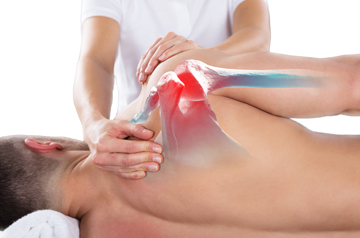Frozen Shoulder Treatment in Ajmer
Frozen Shoulder, which is also known as Adhesive Capsulitis, is a disease that causes pain in the stiffness of the shoulder joint. Such people in Ajmer have some treatment options available like physiotherapy, medications, and surgical procedures. Timely treatment brings successful recovery; otherwise, a person has to face permanent disability. Frozen shoulder treatment in Ajmer includes a variety of approaches tailored to patient needs.


What is a Frozen Shoulder?
The shoulder capsular involvement tightens, thus restricting movement in the joint, which is caused by a frozen shoulder. It progresses through three stages and develops slowly:
- Freezing stage : Pain increases with limited motion.
- Frozen stage : There might not be much pain anymore but is still stiff, consequently resulting in its motion being highly constrained.
- Thawing stage : Shoulder's mobility normally returns over time.
Common symptoms are dull or aching pain in the shoulder, difficulty performing regular daytime activities, and disturbed sleep due to giving way to the pain. Casual risk factors include diabetes and thyroid disorders, as well as shoulder injuries in the past.
Difference Between Surgical and Non-Surgical Treatment for Frozen Shoulder
Purpose
- Non-Surgical Treatment : We aim to resolve pain and restore shoulder movement through conservative methods.
- Surgical Treatment : The implant is considered when the conservational interventions have failed to offer any benefits.
Methods Used
- Non-Surgical Treatment
- Physical Therapy : Includes exercise helps an increased range of motion and the strengthening of the shoulder muscles.
- Medications : Pain and swelling are decreased by anti-inflammatory drugs.
- Heat/Ice Therapy : Applying heat or an ice pack alleviates suffering.
- Corticosteroid Injections : To reduce inflammation and pain.
- Surgical Treatmen
- Arthroscopic Surgery : A minimal invasion procedure where the tissues and adhesions are taken out.
- Manipulation Under Anesthesia : Gentle traction is initiated gradually to free any adhesive site in the shoulder.
Recovery Time
- Non-Surgical Treatment : Consistent therapy allows positive outcomes to develop between 6 to 12 weeks.
- Surgical Treatment : A full recovery could take 3-6 months with the intervention of rehabilitation.
Risk Level
- Non-Surgical Treatment : Low risk, minor side effects with medication a minor concern.
- Surgical Treatment : Increased associated risk with high chances of inconvenience due to possible anesthesia-related events or a postoperative infection.
Effectiveness
- Non-Surgical Treatment : In some situations, this can be effective, especially if started early.
- Surgical Treatment : Used when conservative methods have not helped.
Top Tips for the Treatment of Frozen Shoulder
The actual cure for frozen shoulder depends much on timely intervention, compliance, and an adequate cocktail of therapeutic techniques. Following are a few important pointers to help manage symptoms and hasten recovery. These strategies are widely practiced as part of frozen shoulder treatment in Ajmer.
- 1. Start Gentle Stretching Early : With light initial stretching exercises, much can be done to maintain shoulder mobility. The health professional recommends simple exercises such as pendulum swings or wall climbs. These exercises help keep the joint flexible and prevent additional stiffness, especially in the early stage. However, it is equally important to avoid overstretching, which may aggravate the condition.
- 2. Stick to Your Physical Therapy Plan : It is imperative that you are consistent. Physical therapy is one of the most effective non-surgical methods to treat frozen shoulders. Sticking to the therapy plan given to you improves the range of motion and strength in stages. Skipping appointments or avoiding home exercises delays the recovery and diminishes the effectiveness of the treatment.
- 3. Apply Heat Before Exercise : The heat prior to executing an exercise on the shoulder would relax the muscles, promote blood supply, and reduce stiffness. Apply heat using any heating pad or take a warm shower for approximately 15-20 minutes prior to a session of therapy. This would enhance movement and lessen the pain experienced while moving.
- 4. Take Medications as Per Prescription : In alleviating pain or inflammation, the doctor may prescribe NSAIDs or corticosteroids; in that case, the patient must always follow the exact dose and timing prescribed to ease suffering and gradually progress in therapy. Never self-medicate or stop medicine without a doctor’s consultation. There are several physiotherapy centers offering frozen shoulder treatment in Ajmer, making it easier for patients to access customized therapy programs close to home.
Frozen Shoulder Treatment in Ajmer? Consult Dr. Vikram Sharma
Hopefully, now you've understood the importance of frozen shoulder repair. If you're looking for a helpful hand that can provide proper treatment to your frozen shoulder, then contact Dr. Vikram Sharma, a leading orthopedic surgeon, who is well known for his advanced training in sports injuries. Dr. Sharma has experience treating various shoulder conditions, offering consultations for all your concerns.
